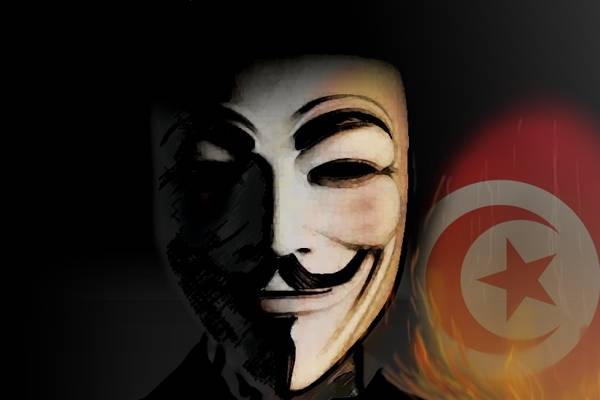Dubbed the ‘Jasmine Revolution’ by some pundits, the spectacular overthrow of the Tunisian President is not just another ‘current event’ among many. It is an epic occasion – the first popular overthrow of an Arab dictator in modern history.
Other autocrats in the region will be twitching nervously tonight, because if it is possible in Tunisia, a land famed for its gentle and warm habits, why not elsewhere?
We have seen many revolutions recently. Many were orchestrated, some were genuine, a few succeeded while others fizzled out. But the Tunisian uprising seems to be bona fide, and gives us an opportunity to gain valuable insights into the anatomy of revolution. It’s worth a closer look.
First let’s set the scene. Unless you’re a tourist on the beach, life in Tunisia is grim. Unemployment rates are shocking and living standards collapsing. It’s a torturing, looting and demoralising Police State.
The oligarchy in power was one of the most openly corrupt in the world. The shopaholic First Lady alone was a Bandit Queen par excellence, with antics that would make even Imelda Marcos blush. This is the depressingly familiar backdrop of the seething discontentment.
The Revolution was sparked from a tiny but genuine uprising over an unemployed graduate who in despair, set himself on fire because he was denied a ‘license’ to sell fruit on a footpath.
This event started a chain reaction.
The shock to the national conscience was universal, but a brave but tiny minority risked beatings and arrests by protesting in the streets of a few main towns, the object of their frustration being the callous and ineffectual authorities. Everyone was on the same page. Everyone sympathised. The first martyrs fell. The protests grew.
It was not a silly tantrum by a political group over a peripheral issue. And not an easily dismissible fringe, but a wide cross-section of Tunisian society. People from all over the political spectrum joined in ranging from the crazy to the indifferent – artists, businessmen, religious groups, students, housewives – all banding together for a unifying cause and against a single enemy.
President Ben Ali, having ruled his people with a mailed fist for over 23 years was predictably cocky. Proving he hadn’t yet lost his mastery of cynical political theatrics, he called the protesters ‘terrorists’ and cracked more heads. The protesters did not buckle.
Nothing special here so far. The same thing happened in Iran in 2009. There too, the Iranian authorities were ruthless and showed no mercy. Back then, the Iranians just ignored the global media furore and eventually, the globally feted Iranian opposition movement was stamped out.
But in Tunisia, President Ben Ali made a fatal mistake. He could have easily carried on regardless – cracking down hard on the protestors in spite of the global condemnation (like the Iranians, Egyptians and Chinese do regularly). Instead, after dozens had already died, he either discovered his long lost conscience, or attempted a cynical political trick.
Either way, he badly miscalculated. He made a TV address and gave a backpedalling speech, apologising and promising not to use live ammunition anymore. Bad move.
Politically speaking, this showed weakness – a serious flaw in any Arab potentate. The street-smart Tunisian protestors, instead of being pacified, could now scent blood. Now that live ammunition was off the table, the protests only grew more intense.
And why not? Ben Ali had backtracked and compromised on live ammo. This only proved to the protestors that they were winning and that that he would make more concessions if they carried on. So with the riot troops ammo-less and overwhelmed, the protests spiralled out of control. Now desperate, he promised to step down from office in 2014. Too late.
As the Central Bank and Interior Ministry were being stormed, the Tunisian Military decided that enough was enough. The military authorities told the president and his crooked family to get on a plane and get the hell out. The military is influential in Tunisia, but thanks to the anarchy in the streets, even strongman Ben Ali was not in no position to argue.
So in the end, he was nudged out – a de facto military coup. The Generals certainly never expected it and probably never prepared for it, but their hand was forced by the rush of events. As the guardians of last resort, they did what they had to do in the interests of Tunisia.
With the political establishment discredited and decapitated, the military was the ‘last man standing’. Working behind the scenes, they arranged for the selection of a caretaker Prime Minister and deployed tanks and troops around Tunis to try to return a semblance of law and order.
Now elections will be held within 90 days and reforms will be implemented. Exiled opposition groups have been asked to return and Ben Ali is sitting at the end of his bed tonight in Jeddah wondering where it all went wrong.
One day it could be Zardari and his cronies.
In fact, this is the only way real change can take effect in Pakistan. There are differences for sure, between the Pakistani and Tunisian stories, but the differences only make us look pathetic and them all the more brave.
If you look past the tourist-friendly cocktails and bikinis, you will find that Tunisia is a true Police State. Torture, disappearances, assassinations, media censorship – a full-spectrum tyranny. Arab governments may have inept militaries but they take no shortcuts when it comes to internal security. Most of the government budget of an Arab country is spent on policing, spying and jailing. Protests? Forgedaboudit.
Yet in Pakistan we have protests all the time over all kinds of nonsense issues. Mostly it seems to me to be a peculiar way for some people to pass the time. Meanwhile, our internal security and ‘riot control’ is totally non-existent.
But unlike most Arabs, we do enjoy freedom of assembly and the right to protest. We could hold a million-man-march down Jinnah Avenue tomorrow if we wanted to and the police probably wouldn’t even turn up. But we just can’t be bothered.
The Tunisians took great risks to win their freedom, while we take for granted the few freedoms we have. What they have bravely gifted to the world at great cost in martyrs blood is a method of action for the rest of us to follow. And it would be much easier for us.
So. This is my easier than ever, patented 12 step plan for a Revolution in Pakistan:
1. A Trigger Event starts popular protests in major cities (not a polarising fringe issue but one that all will rally around and be sympathetic to, eg. price-hike, corruption scandal, assassination, terror attack.
2. Protests Cascade and increase as more organised and unorganised groups (from across the political spectrum) join in.
3. Wanting to restore order, authorities Crackdown. Unlike Arab/Iranian/Chinese police though our police are undertrained and incompetent so they would inevitably fail.
4. Protests get messy, people get injured and killed. Fierce attention and criticism from the global media. Authorities Hesitate.
5. Getting desperate, the Government Concedes on some issue with protesters. You know they would too.
6. Protesters taste victory and so make further demands while intensifying protests to force Further Compromises.
7. Anarchy on the streets as police completely lose control. With the usual suspects off a leash, looting and rioting could break out across major cities. Terror attacks could compound matters.
8. Military steps in. Works behind the scenes to force the Collapse of the now impotent government.
9. Military appoints a ‘non-controversial’ civilian Caretaker leader who everyone respects and trusts.
10. Because a new Civilian is in charge it is not apparent it is a military coup. It kind of is, but it is Constitutional. Caretaker regimes are permitted for 90 days under the Constitution. Army secures the urban cities with curfews, patrols etc, but no martial law is declared unless essential. Protests die out.
11. Caretaker leader appoints a non-controversial panel of citizens of impeccable repute to select a new technocratic Leadership through consensus. Only the new civilian leadership is seen publicly. Military stays in the shadows. Pakistan rebuilds and prospers.
Voila.
Democracy? Nope. In its current form it clearly isn’t working out. Let’s not beat a dead horse please. Dictatorship is not an option either. Working within the existing constitution, only a new meritocratic civilian caretaker leadership offers a real solution.
With a real ‘mandate for radical change’ because of the popular uprising, they can clean house, wipe-out terrorism, restructure the creaking judiciary, permanently ban political parties based on linguistic, religious, ethnic lines and enact much needed economic policies.
Our government institutions are beyond reform. They need to be replaced lock, stock and barrel. Only revolutions allow such windows of opportunity. Iran before and after 1979 looked very different, so did Russia before and after 1917 and America before and after 1776.
Pakistan before and after 2011?











0 comments:
Post a Comment